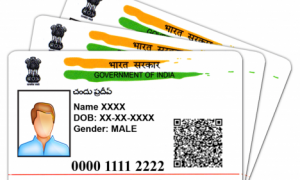Filing income tax is one of the crucial tasks for taxpayers in India. On December 31, 2024, the opportunity to file belated and revised income tax returns for the financial year 2023-24 (assessment year 2024-25) will come to a close.
A considerable number of individuals may not fully comprehend the repercussions associated with exceeding the submission deadline for FY 2023-24. It is important to note that the income tax regulations specify distinct deadlines for various taxpayer categories when it comes to filing income tax returns (ITRs). Nevertheless, the deadline for submitting belated and revised returns remains consistent for all taxpayers.
A belated return refers to the income tax return that is filed after the deadline. The deadline for filing income tax returns for the Financial Year 2023-24 is July 31, 2024. Should you fail to submit your ITR within the initial deadline, you have the option to submit a belated return to fulfill your tax obligations. The deadline for the belated income tax return is December 31 of the same year. Although late filing has consequences, it is preferable to comply late rather than facing potential penalties for non-compliance.
Also Read : 55th GST Council Meeting Today: What Will Be Cheaper, Costlier? All You Need To Know
What happens when you file belated ITR
The filing of a late return is done in accordance with Section 139(4) of the Income Tax Act, which incurs a penalty of Rs 5,000 upon filing. This penalty must be paid regardless of whether any tax amount is outstanding. If the taxable income is below a certain threshold, a reduced penalty of Rs 1,000 is applicable. However, no penalty is imposed for filing a late return if the taxable income is below the basic exemption limit of Rs 3 lakh.
Filing a late return for FY 2023-24 comes with a significant drawback – taxpayers are no longer able to choose the old tax regime. The default tax regime since April 1, 2023, is now the new tax regime, meaning that any belated returns for FY 2023-24 will need to be filed under this new regime.
The Old Tax Regime offers taxpayers the opportunity to access a wide range of deductions and tax exemptions that are not present in the new tax regime. These deductions and exemptions assist in reducing the taxpayer’s taxable income and, subsequently, their income tax obligations.
Also Read : Aadhaar card free online update offer extended – Check new deadline and steps to update name, address
On the contrary, the new tax regime only allows for two deductions: a standard deduction of Rs 50,000 for the financial year 2023-24 (Assessment Year 2024-25) and the employer’s contribution to the National Pension System (NPS) of up to 10% of the basic salary for the financial year 2023-24 (Assessment Year 2024-25). Other common deductions such as those under Section 80C, 80D, and HRA tax exemption are not applicable under the new tax system.
Revised return
A taxpayer can submit a revised return to rectify errors found in the original and late returns. The revised return allows for corrections to be made to any mistakes made in the filed Income Tax Returns (ITR), such as the omission of income, failure to claim deductions, or undisclosed bank accounts.
If the taxpayer misses the deadline to file a revised return, they will be unable to do so for that assessment year. This means they will not be able to claim refunds or offset losses through a revised return. While updating a return is permitted under income tax laws, it cannot be done if it results in increased refunds, reduces the total tax liability reported in the original or late return, or includes losses.
As per section 139(5) of the Income Tax Act, 1961, taxpayers are allowed to file a revised return as many times as necessary. However, it is advised by experts to avoid unnecessary revisions to prevent their ITR from being scrutinized by the Income Tax Department.
Also Read : Supreme Court rejects 30% cap on late credit card payments: All about the case
It is important to note that a revised return can only be filed up to three months before the end of the relevant assessment year or before the completion of assessment, whichever comes first. Even after receiving an intimation under section 143(1), a taxpayer can still revise their ITR. However, once the ITR has undergone a regular scrutiny assessment under section 143(3), it cannot be revised.
ITR-U
If you miss the deadline for filing your tax return, you have the option to submit an ITR-U form in specific cases. ITR-U, also known as Updated Income Tax Return, allows you to correct any errors or omissions in your previous tax return. This form can be submitted within two years from the end of the assessment year. The government introduced the concept of updated returns in the Union Budget 2022.
After the deadline on December 31st of the assessment year, filing belated or revised tax returns is not allowed. However, starting from January 1st of the assessment year, you can use the ITR-U form to make minor corrections to your original tax return. It’s important to note that ITR-U cannot be used to reduce taxes owed, claim refunds, or increase losses.





































